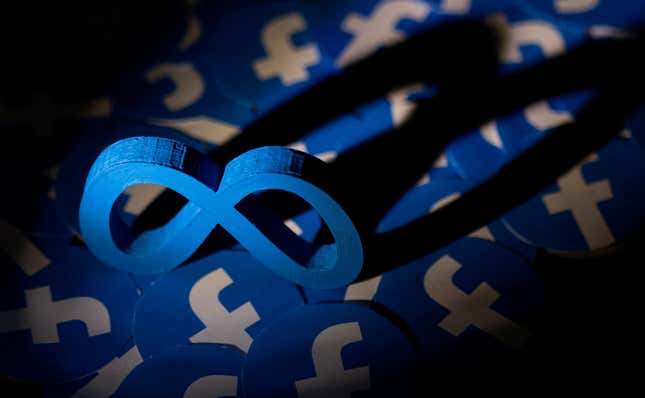
Meta has been taking down Chinese Facebook accounts that were likely designed to polarize US and Indian voters ahead of the 2024 elections.
Last quarter Meta removed 4,789 fake Facebook accounts in China it identified as partaking in coordinated inauthentic behavior (CIB) targeting the United States, according to the company’s most recent transparency report released yesterday (Nov. 30). The fake account owners posed as Americans to post content across Facebook and X (formerly Twitter) about US politics and US-China relations ahead of the November 2024 elections.
To appear more authentic, the accounts posted links to news articles from mainstream US media, reshared Facebook posts by real people, and broke up the political posts with other topics like gaming and pets; they also tended to use the same name and profile photo across platforms.
“Instead of creating its own content, it copy-pasted tweets by real people, [including] American politicians on both sides of the aisle. None of them managed to build an authentic audience,” the tech behemoth wrote.
Fraudulent accounts also targeted another nation holding major elections in 2024: India, the world’s largest democracy, which will pick its national government in April and May.
“Unusually, in mid-2023 a small portion of this network’s accounts changed names and profile pictures from posing as Americans to posing as being based in India when they suddenly began liking and commenting on posts by the other China-origin network focused on India and Tibet,” Meta disclosed.
The collection of accounts and groups targeting Tibet and the northeast-Indian state Arunachal Pradesh cast a smaller net: Meta removed just 13 accounts and seven groups for to fraudulent activity. The majority of the fake accounts posed as journalists, lawyers and human-rights activists, and a handful as Americans that shared links to articles from mainstream US media like HuffPost, Breitbart, the Wall Street Journal, and Fox News.
China is the third-biggest source of CIB on Meta, after Russia and Iran.
Déjà vu: Meta has removed a Chinese “spamouflage” network before
In August, Meta took down 7,700 Facebook accounts related to the Chinese CIB network dubbed “Spamouflage,” which Meta described at the time as the “largest known cross-platform covert influence operation in the world.” It also removed 954 related Facebook pages. Meta said the campaign didn’t gain traction among its real user base.
Quotable: Foreign interference in 2024 elections continues
“Overall, these networks have continued to struggle to build audiences and shift to smaller platforms, but they’re a warning—foreign threat actors are attempting to reach audiences ahead of next year’s various elections, including in the US and Europe, and we need to remain alert to their evolving tactics and targeting across the internet.”
Meta’s election prep, by the digits
40,000: Meta employees currently working on safety and security
$20 billion+: Invested in teams and technology in this area since 2016
100: Partners in Meta’s global independent fact-checking network, which reviews and rates viral misinformation in more than 60 languages
200+: Malicious influence campaigns using CIB Meta has taken down as of Nov. 30
700+: Hate groups Meta has designated around the world, including more than 400 white supremacist organizations
10.1 billion: Estimated views of 100 prominent pages that repeatedly shared misinformation on Facebook ahead of the US 2020 elections, according to a report by the online advocacy group Avaaz
Nearly 100 million: US voters who saw voter fraud content on Facebook ahead of that election, according to the same report